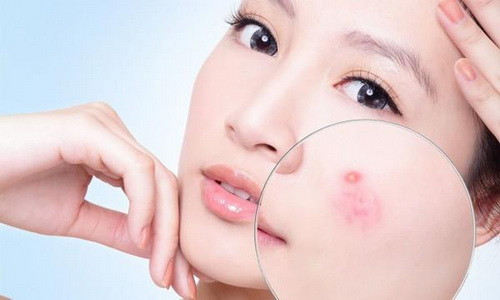Prevent diseases that are easily caught in the wet season
In humid weather, pollen disperses a lot, mold grows, and pathogenic microorganisms also compete to increase in number, causing many diseases.
To stay healthy during humid weather, people need to proactively prevent the following diseases.
Vernal conjunctivitisThis is an eye allergy that can be related to airborne allergens such as pollen, dust, animal hair, insects, wind, sunlight, etc. Symptoms of the disease include red eyes, watery eyes, itchy eyes, irritated eyelids, and photophobia. The disease often occurs in the spring, because in the spring, flowers bloom a lot, pollen spreads, and pollen or dust falls into the eyes of people with allergies, causing the disease. The more humid the weather or the more polluted the air, the more severe the disease. Patients with allergies often have relapses.
When symptoms appear, first avoid rubbing your eyes. Use eye drops or artificial tears to wash away pollen and dust; you can also apply cold compresses to reduce itching. Then see a doctor for proper medication.
 |
Spring and summer with high humidity, bacteria thrive combined with always wet facial skin, creating favorable conditions for sebum to clog pores, causing acne. |
Allergic rhinitis
The disease can occur all year round, but is most common in spring in people with allergies. The reason is that in spring, pollen spreads quite a lot in the air, causing itchy nose, sneezing, runny nose, and stuffy nose, which is very uncomfortable.
People with allergies should avoid going to places with lots of flowers, not put flowers in the room, and use a mask when going out. When inhaling pollen, you can first use sterile saline nasal drops to clean the pollen. Then, you need to see a doctor to get the appropriate medication.
AsthmaThis is the leading disease in common respiratory diseases in humid weather. Weather changes cause the body's resistance to decrease. Combined with allergens such as pollen, dust, mold, insects... are very developed. So when people with allergies inhale the above agents, it will cause tracheal constriction, creating asthma attacks, making it difficult to breathe, face and nose turn purple, if severe can lead to respiratory failure.
For mild bronchial asthma, it often occurs during exertion, manifested by coughing like whooping cough, being able to speak long sentences without interruption. Listening to the lungs, there is a whistling sound at the end of exhalation. For moderate bronchial asthma, the cough occurs during exertion, the voice is intermittent, and signs of chest retraction, sternum, and supraclavicular fossa begin to appear. Wistling is heard during exhalation. For severe bronchial asthma, it is difficult to breathe, cough at rest, the nostrils flare; the phenomenon of chest retraction, sternum, and supraclavicular fossa is very clear; the lips are purple. Speaking or crying is very difficult (only one word at a time).
In bronchial asthma, if there is a fever, it is very likely that the child has a respiratory infection (upper or lower respiratory tract) caused by microorganisms (bacteria, fungi or viruses).
In very severe (malignant) asthma attacks, the child has severe difficulty breathing, cannot cry or speak, and at this time, lung sounds are no longer heard. Asthma attacks occur continuously for many days if there is no timely intervention.
To prevent asthma attacks, you need to protect yourself from allergens, use activated carbon masks, and supplement vitamin C. Always carry a bronchodilator spray with you.
AcneMany people think that only in the summer, sweat is secreted a lot, sebum glands contain a lot of oil, causing acne to grow a lot. But in fact, it is not so, spring and summer with high humidity, causing bacteria to grow strongly combined with the face is always wet, which is a favorable condition for sebum to clog pores, bacteria to grow, leading to acne, pustules. In addition, Tet is the time when people eat irregularly, eat a lot of spicy food, drink a lot of beer and alcohol, which makes acne worse.
At this time, you need to stop eating spicy foods and add more vegetables and fruits. Remember to wash your face before going to bed and right after coming home. Do not squeeze acne yourself and pay attention to treating acne according to your doctor's instructions.
ChickenpoxThe time after Tet is also the time when chickenpox epidemics enter the season. This is an infectious disease but usually mild, caused by the Varicella Zoster virus. People who come into direct contact with sick people, through the respiratory tract (saliva, sneezes, nasal secretions of sick people) or through contact with blisters, contact with clothes, bed sheets... are susceptible to the disease. About 90% of people who have not been vaccinated or have never had chickenpox will be infected if they come into contact with an infected person. In particular, the time of infection is often long and people with chickenpox can infect others 1-2 days before the rash appears.
Patients often have symptoms: first, small, itchy spots appear on the face, neck, then the abdomen, chest, legs... Then, these spots form large blisters (3-4mm in diameter), oozing water and pus. These spots gradually dry up, become scabs and heal after 5-7 days.
Chickenpox is a benign disease, but if scratched a lot due to itching, the blisters will burst, causing infection and leaving scars. More dangerously, bacteria can enter the blood from the blisters, causing complications such as thrombocytopenia, transverse myelitis, facial nerve paralysis, cerebellar disorders, myocarditis, meningitis, neuritis...
Therefore, the best way to prevent chickenpox is to get vaccinated and avoid contact with people who are sick. When you get sick, you need to see a doctor to get the right treatment.


